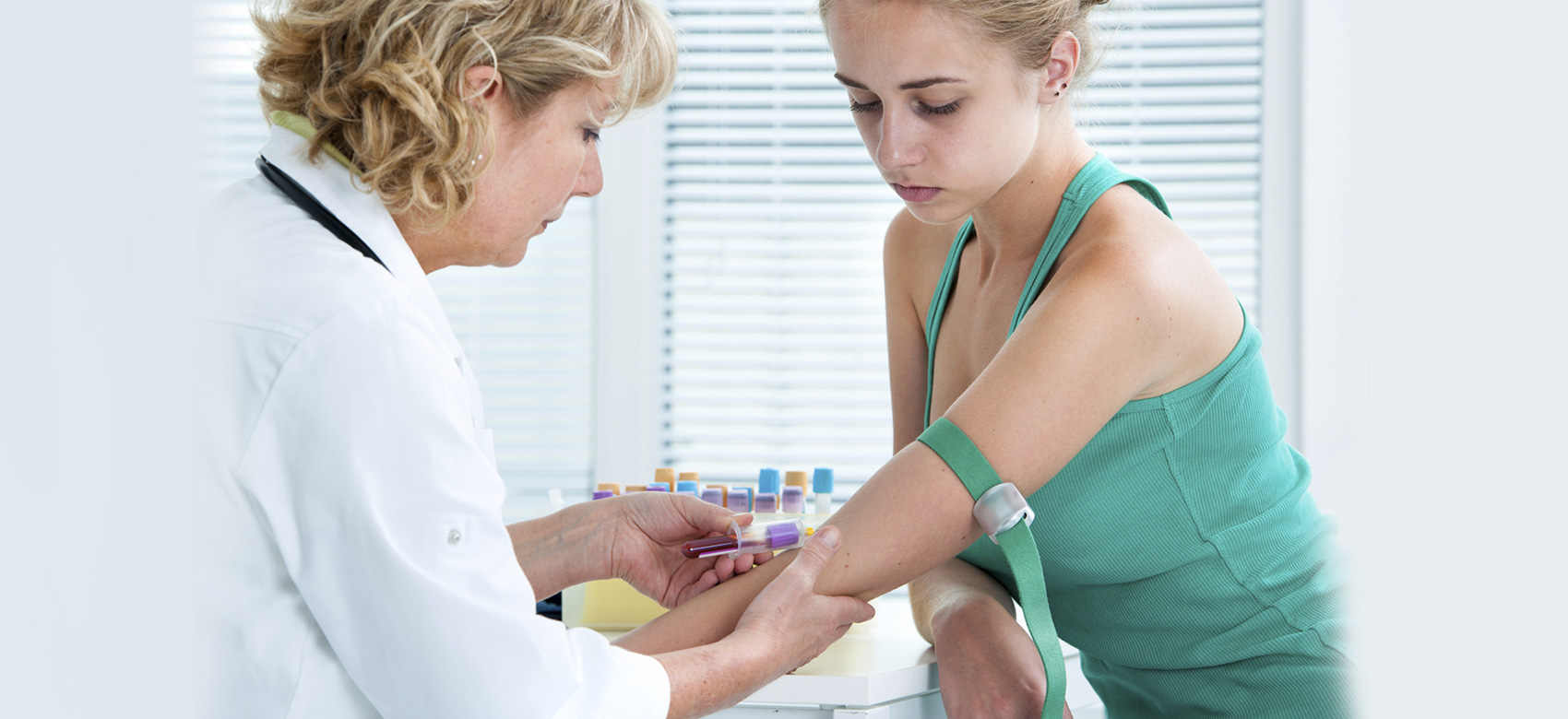Pathology is a medical specialty that focuses on determining the cause and nature of diseases. By examining and testing body tissues (e.g. biopsies, pap smears) and fluids (e.g. blood, urine) pathology helps doctors diagnose and treat patients correctly.
Pathology services provide diagnostic and consultative services to medical specialists and general practitioners and their patients in hospitals and in the community. They do this through the scientific analysis of specimens of blood, fluids, tissue and other samples; interpretation and reporting of clinically meaningful results; and provision of expert medical opinion through consultation.
Pathology testing is one part of the process of understanding disease in any person who comes to a doctor with a problem. Generally, a pathology test is initiated by a request from a patient’s doctor. A sample is taken from the patient and sent to a laboratory where equipment and trained staff process, analyse, interpret and report the results of the test. The report is provided to the requesting doctor to help decisions about the patient’s diagnosis, treatment and/or management.
Pathology services lie at the heart of health care services provided to patients. They underpin the quality and cost effectiveness of health care.
- Pathology is a clinical knowledge service that is fundamental to modern medical practice and health care.
- Pathology is used in the diagnosis, treatment and management of an increasing range of clinical conditions.
- Over 70 per cent of all health care decisions affecting diagnosis or treatment involve a pathology investigation. All cancer diagnoses involve pathology.[1]
- In the general practice setting, the BEACH Study of General Practice Activity of the Australian Institute of Health and Welfare (AIHW) reports that pathology testing is ordered at one in every five patient visits.
- The BEACH study also indicates that, in the Australian primary care setting, 40% of pathology testing is used for diagnostic purposes, 40% for monitoring and 20% for preventative purposes.
Pathology is essential to the prevention, early detection, diagnosis and treatment of many of the leading causes of disease burden in Australia – e.g. cancer, cardiovascular disease and diabetes. Pathology may be involved in healthcare at every stage of a person’s life.
Mothers & Babies
Mothers tested for iron levels (anaemia), glucose testing (gestational diabetes)
Fetus tested for chromosomal abnormalities
Children & teens
Testing for polio, mumps, measles and rubella, diabetes and genetic disorders.
Adults
Testing for cholesterol, diabetes, heart problems, thyroid conditions, liver disease and arthritis.
Cardio-vascular disease
Tests to detect early those at high risk and most likely to benefit from intervention by cholesterol lowering drugs used for patients at high risk of cardiovascular disease (statins).
Cancer
For diagnosis
To determine treatment options & predict prognosis
To monitor disease progress & evaluate effectiveness of treatment.
Visit the Know Pathology website for more about pathology in general.
Visit the Lab Tests Online website for more about specific pathology tests.
Pathology Workforce
The pathology workforce is comprised of pathologists, medical scientists, collectors and support staff.
Pathologists are medical doctors who have specialised in pathology during 13 years of university education. They often advise referring doctors, explaining complex or inconclusive test results and recommend further tests where needed. Click for more about pathologists.
Medical scientists have studied how to measure various bodily functions at university. Click for more about medical scientists.
Collectors (phlebotomists) & support staff ensure that specimens are taken correctly and transported to laboratories where they are duly registered, processed and reported. Phlebotomists may be trained by pathology providers and in the Vocational Education & Training (VET) sector.
Pathology Disciplines
There are nine major areas of activity in pathology.
- Anatomical pathology deals with the tissue diagnosis of disease, usually from biopsy materials taken from a patient.
- Chemical pathology (biochemistry) detects electrolytes, enzymes, proteins, vitamins, hormones, tumour (cancer) markers, poisons and both therapeutic and illicit drugs.
- Forensic pathology deals with the medicolegal investigations of sudden or unexpected death.
- Genetics involves tests on chromosomes, DNA and specific biochemical markers to diagnose genetic diseases.
- Haematology deals with diseases which affect the blood and transfusion medicine.
- Immunology deals with allergies and auto-immune diseases.
- Microbiology deals with bacteria, viruses, fungi and parasites. Microbiology is also involved in dealing with the control of infectious disease outbreaks and antibiotic-resistant bacteria.
- General Pathology covers all areas of pathology at less specialised levels.
- Clinical Pathology is similar to General Pathology but clinical pathologists do not perform anatomical pathology. Clinical Pathologists are usually trained in chemical pathology, microbiology, haematology and blood banking.
Click for more about the disciplines of pathology.
[1] Bayram C, Britt H, Miller G, Valenti L 2009. Evidence-practice gap in GP pathology test ordering: a comparison of BEACH pathology data and recommended testing.

